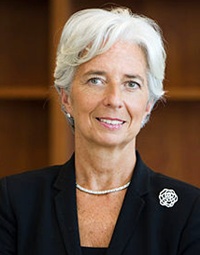IMF chief warns of crisis escalating globally
16 Dec 2011
 Sounding a grim warning, Christine Lagarde, managing director of the International Monetary Fund said that the global economy faced the prospect of "economic retraction, rising protectionism, isolation and . . . what happened in the 30s (depression)", as European tensions again flared over suggestions in Paris that the credit rating of the UK should be downgraded ahead of France's.
Sounding a grim warning, Christine Lagarde, managing director of the International Monetary Fund said that the global economy faced the prospect of "economic retraction, rising protectionism, isolation and . . . what happened in the 30s (depression)", as European tensions again flared over suggestions in Paris that the credit rating of the UK should be downgraded ahead of France's.
"There is no economy in the world, whether low-income countries, emerging markets, middle-income countries or super-advanced economies that will be immune to the crisis that we see not only unfolding but escalating," Lagarde said in a speech at the US state department in Washington. "It is not a crisis that will be resolved by one group of countries taking action. It is going to be hopefully resolved by all countries, all regions, all categories of countries actually taking action.
Stressing that global economic leaders needed to take a holistic approach toward addressing systemic weaknesses, such as those exposed by the current euro crisis Lagarde said, ''It is going to require efforts, it is going to require adjustment, and clearly it is going to have to start from the core of the crisis at the moment, which is obviously the European countries and in particular the countries of the eurozone.''
According to analysts the remarks are her most outspoken warning urging co-ordinated international action, which she likened to Alexander the Great splitting the Gordian knot. ''It is really that Gordian knot that needs to be cracked, that needs to be addressed as collectively as possible, starting with those at the centre but with the support of the international community probably channelled through the IMF,'' she said.
At last week's European summit, leaders agreed to an contribute an extra €200 billion to the IMF to ''help deal with the crisis''.
Though Britain was said to have agreed to provide an additional £30-billion in loans, reports say providing more than the extra £10 billion already agreed by Parliament was ruled out.



















